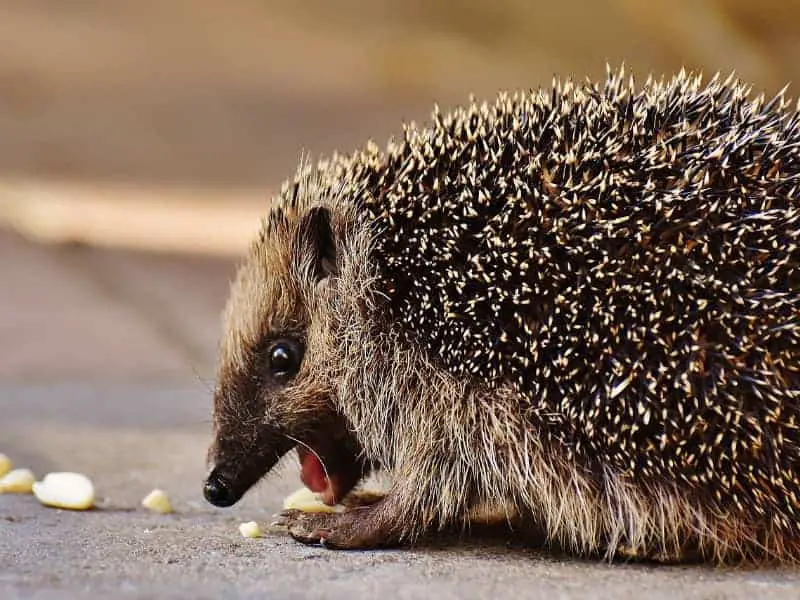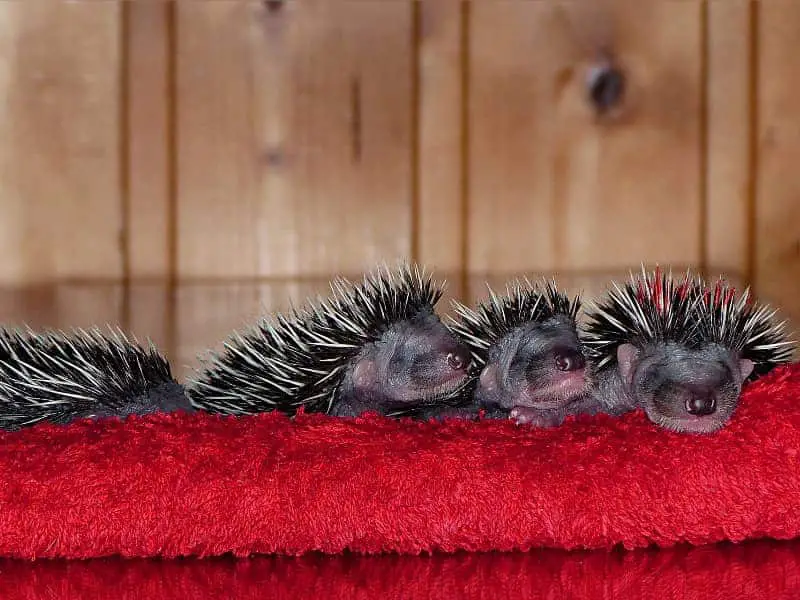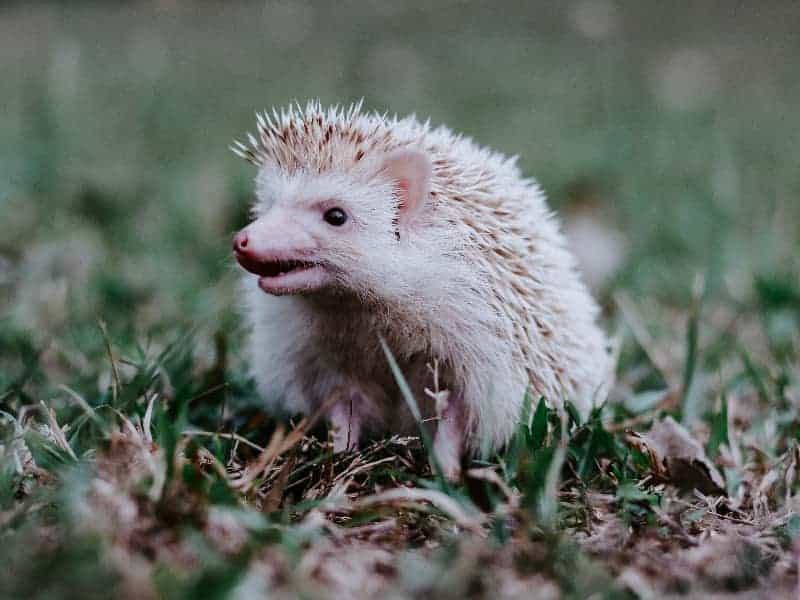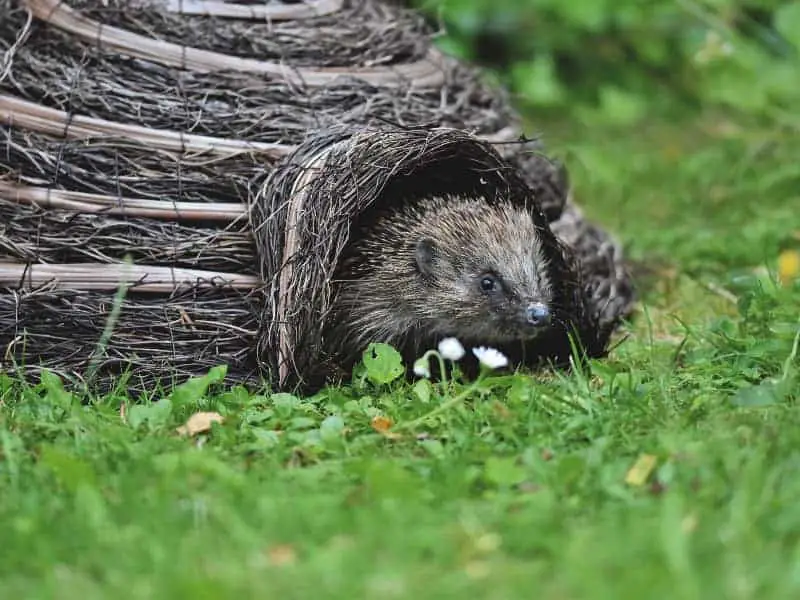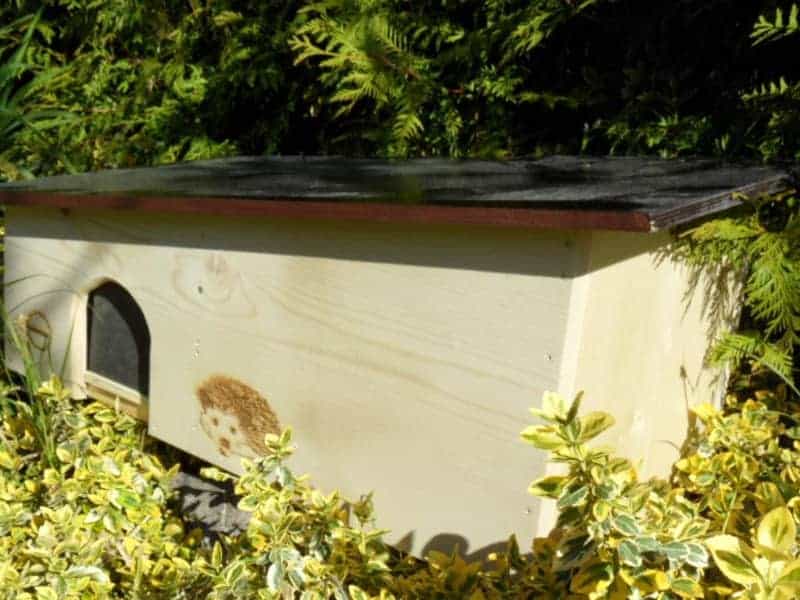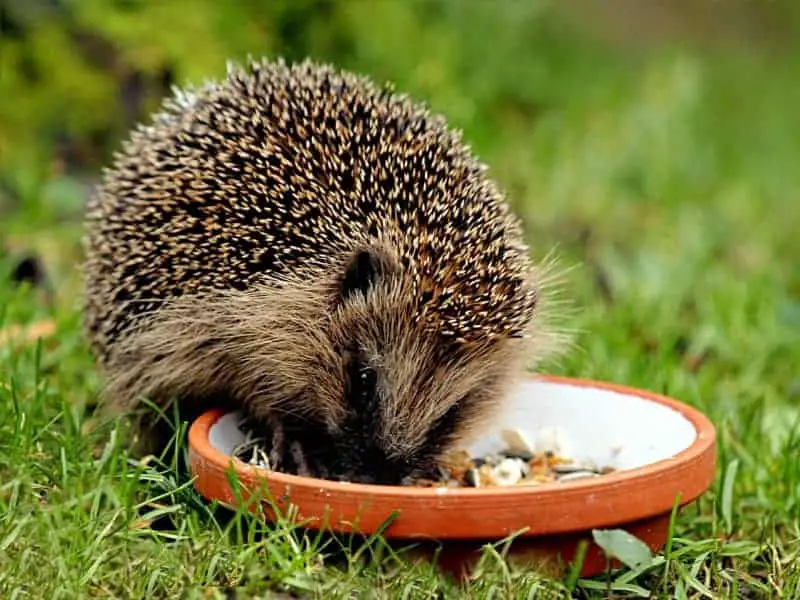
Should I feed a hedgehog in the garden?
The answer to this question is clearly NO. Surely mostly you do well if you want to feed the hedgehog in your garden. However, the hedgehog is a wild animal and therefore not dependent on human contact.
- Should I feed a hedgehog in the garden?
- Feed the hedgehog in the garden - what's wrong with that?
- The arguments against feeding the hedgehog in the garden
- Exceptional situations to feed hedgehogs in the garden
- What does supplementary feeding look like in exceptional situations?
- What food and how much should you give the hedgehog?
- Is it advisable to feed the hedgehog in the garden all year round?
- Can the hedgehog overeat?
- Feed the hedgehog in the garden - what's wrong with that?
Feed the hedgehog in the garden - what's wrong with that?
It is a beautiful sight to watch a hedgehog eat. When you see the However, you attract hedgehogs with foodthen this is misunderstood animal love.
Basically, the hedgehog is not only quite greedy, but also comfortable. If you want to feed the hedgehog in the garden and keep attracting him with food for a few days in a row, he will soon come on his own. He then expects to be given food.
The Hedgehog eats throughout the day not only what you give him, but also everything else from natural food sources. The consequence of this is that he becomes too fat. However, in order for him to maintain a healthy and sufficient body weight, you must not feed him more.
The arguments against feeding the hedgehog in the garden
- If you feed the hedgehog in the garden in late fall or winter, he may not go into hibernation. Hibernation is important for him and is part of his life cycle.
- The hedgehog's diet consists of insects, small creatures and worms. No substitute food comes close to the quality of this food. Even the best substitute food does not contain the ingredients that the hedgehog needs. The only alternative is cat food. But here, too, this only applies in an absolute emergency. Even hedgehog food is not suitable as a complete food for the mammal because of its composition.
- Young hedgehogs must learn to find the right food animals. But they will only do this if you don't give them a bowl of food every day. If the hedgehog does not learn to find his food himself, he will starve in the long run.
- If the feeding places for the hedgehog in your garden are improper, then you will attract foxes, martens, rats and cats.
- Dirty feeding areas increase the risk of disease to the hedgehog.
- If several hedgehogs meet at the feeding bowl, this can end in a quarrel. Weaker animals are then driven away from the bowl.
- Feed a hedgehog in the garden is not necessary, because he always finds something.
- You can't compensate for the decline in natural food resources by permanently feeding hedgehogs in your backyard.
- If you want to do something good for the hedgehog, then provide a hedgehog-friendly garden.
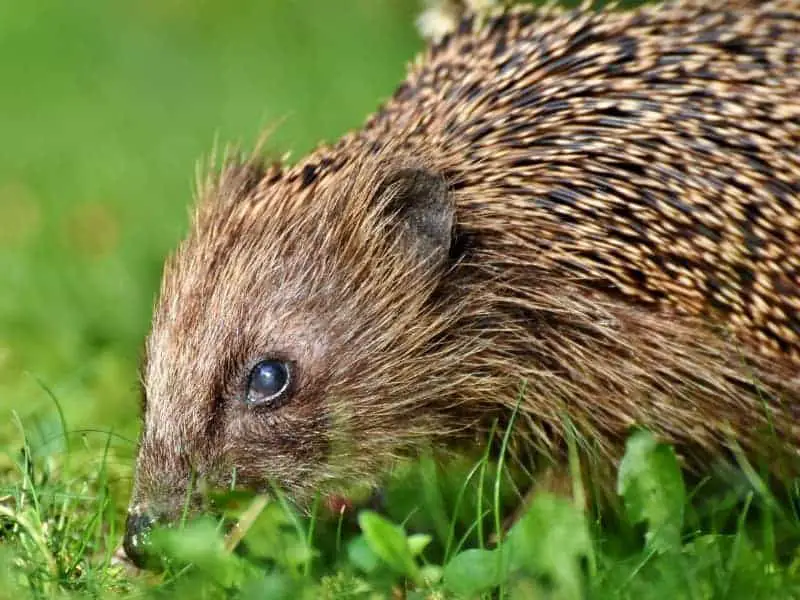
Exceptional situations to feed hedgehogs in the garden
You should feed a hedgehog in the garden only if:
- it awakens too early from hibernation in late winter and there are hardly any food animals to be found.
- a young Hedgehog in late autumn not yet the weight for hibernation has 500 - 600 g.
- the hedgehog is behaving conspicuously. Then you should also call a hedgehog rescue center and get information.
What does supplementary feeding look like in exceptional situations?
- Only an underweight hedgehog should get food from you. If there are several hedgehogs in your garden, mark the spines with some nail polish. This way you can always see which hedgehog is coming to the food bowl. Of course you should only allow the underweight one access.
- If the hedgehog has woken from hibernation too early, offer him wet cat food in a special feeder. As soon as it gets warmer and feeders are out again, stop feeding the hedgehog in the garden.
- If a young hedgehog has not yet gained enough weight for hibernation in late autumn, you can feed him up with wet cat food. You should only offer him water to drink. As soon as the young hedgehog weighs 500 - 600 grams, you should stop feeding him in the garden completely.
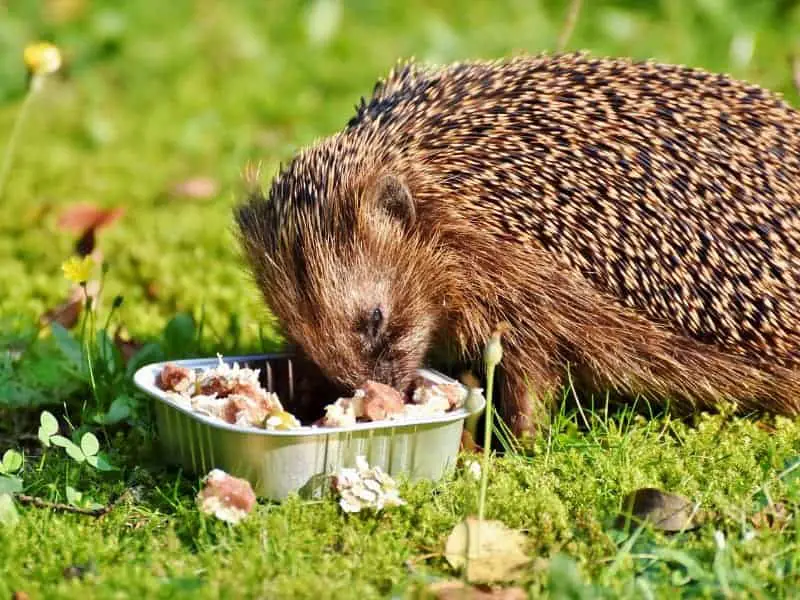
What food and how much should you give the hedgehog?
When feeding hedgehogs in the garden, wet cat food is very suitable. Alternatively, you can also offer dry cat food. After dusk put the food in a well protected place for a limited time. Under no circumstances should you feed all the hedgehogs in the garden.
A young hedgehog weighing 500 g eats about 150 g of wet cat food per day. An emaciated adult hedgehog weighing 800 - 1000 g eats 170 - 200 g of wet food per day. After 2 - 3 days you must check the weight of the hedgehog. It is ideal if he gains 10 - 20 g per day. If the hedgehog decreases or his weight stagnates, then increase the daily ration.
Under no circumstances should you resort to raisins, apples, bananas or avocados when feeding hedgehogs in the garden. Vegetable food is not suitable for the hedgehog. His gastrointestinal tract is very simple and cannot digest the food.
Is it advisable to feed the hedgehog in the garden all year round?
If supplementary feeding is necessary, then only in early spring or late fall. Only during very long dry periods is supplementary feeding advisable. Fresh and clean water, on the other hand, can be offered to hedgehogs in the garden all year round.
Can the hedgehog overeat?
No, because he usually takes only as much as he needs and can utilize. A hedgehog in captivity, which has little run, eats out of boredom. He is very similar to humans in this respect.
Author

-
Garden animal - A life with nature
Welcome to my animal blog! My name is Dirk and I am happy to take you on my journey through the fascinating world of animals and gardening.
Born 54 years ago, I have had an insatiable curiosity for the animal world around me since childhood. Although I have moved professionally in other industries, my true passion has always been animals and nature. It is remarkable how a small garden has become such an important part of my life.
Many of my fondest memories are associated with the animals that share our home. Whether it's the curious squirrels that scurry across the trees in the morning, the colorful variety of birds that visit our feeders, or the busy bees and butterflies that pollinate our flowers, every moment with them is invaluable to me.
This blog is my contribution to share my experiences, discoveries and insights with like-minded people. Here I will share stories of unforgettable encounters with animals, give tips on gardening and creating wildlife-friendly habitats, and take you on my journeys through nature.
Thank you so much for being here!
Cordial,
Dirk aka garden animal
Last posts
- 27. February 2024PetsVeganes Hundefutter – Grün und Gesund?
- 18. January 2024ChickensOregano für Hühner
- November 27, 2023HamsterDiurnal hamsters
- November 24, 2023HamsterHamster hammock

